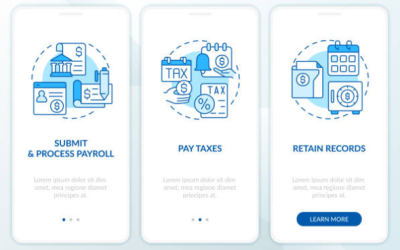In today’s competitive business environment, the temptation to take shortcuts can be powerful. Unethical behavior, whether it’s fudging numbers, cutting corners on compliance, or engaging in deceptive marketing, may seem like a quick way to achieve short-term success. But is it truly worth it? History shows that the negative long-term effects of unethical behavior far outweigh any temporary gain.
Short-Term Wins vs. Long-Term Consequences
In the short term, unethical behavior might yield immediate benefits. For instance, a business might boost profits by misleading customers about the quality of its products or cut costs by bypassing safety regulations. However, these short-term wins can lead to serious long-term damage, both to the company’s reputation and financial health.
A clear example is the infamous case of Enron, a company that appeared highly successful by manipulating its financial statements and deceiving stakeholders. For a while, these unethical practices made the company look profitable, but when the truth emerged, it led to Enron’s collapse, massive financial losses, and legal consequences for its executives. The long-term damage from such scandals can be irreversible, costing not only profits but also trust.
Damaged Reputation
The first casualty of unethical behavior is reputation. In today’s digital age, where news spreads fast, even small ethical missteps can go viral, damaging a company’s image. A bad reputation can cause a business to lose customers, partners, and even employees. Trust, once broken, is extremely difficult to rebuild.
Businesses thrive on relationships—whether it’s with customers, employees, or investors. If unethical behavior becomes known, those relationships deteriorate. People are less likely to work for a company known for cutting corners, and consumers are more likely to support businesses that align with their values of integrity and honesty.
Legal and Financial Ramifications
Taking shortcuts often leads to non-compliance with laws and regulations, which can result in hefty fines, legal fees, and even jail time for business leaders. The financial strain from lawsuits and penalties can cripple a business. Beyond that, companies that engage in unethical behavior may struggle to secure funding from investors or loans from financial institutions that prioritize responsible and sustainable business practices.
Take, for instance, Volkswagen’s 2015 emissions scandal, where the company installed software in its vehicles to cheat emissions tests. The company faced billions in fines and legal costs, not to mention a damaged reputation. While they may have benefited in the short run by dodging regulations, the long-term damage was far more costly.
Loss of Talent
Unethical practices create a toxic work environment. When employees see unethical behavior tolerated or even encouraged, morale drops. High-performing employees are more likely to leave a company that lacks integrity, and attracting new talent becomes difficult. In the long run, unethical behavior drives away the very people who could help a business thrive.
Impact on Customer Loyalty
Customers today are more informed and conscious of the values of the companies they support. If a business is found guilty of unethical behavior—whether it’s exploiting workers, harming the environment, or misleading consumers—it risks losing customer loyalty. Customers are more likely to switch to competitors who




0 Comments